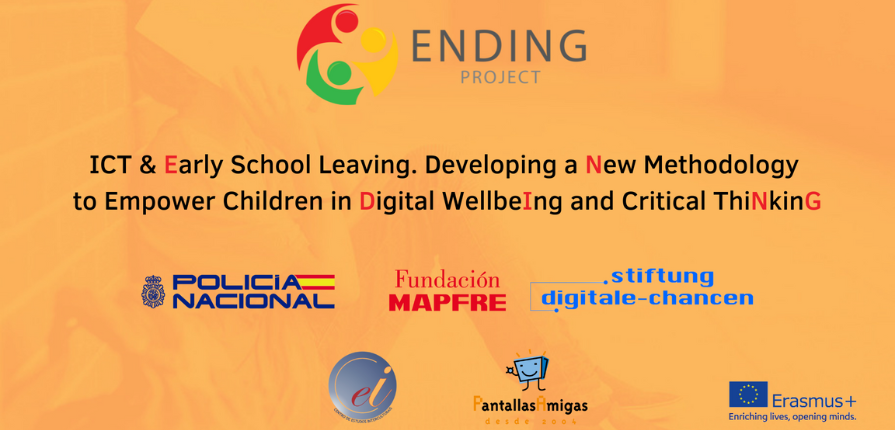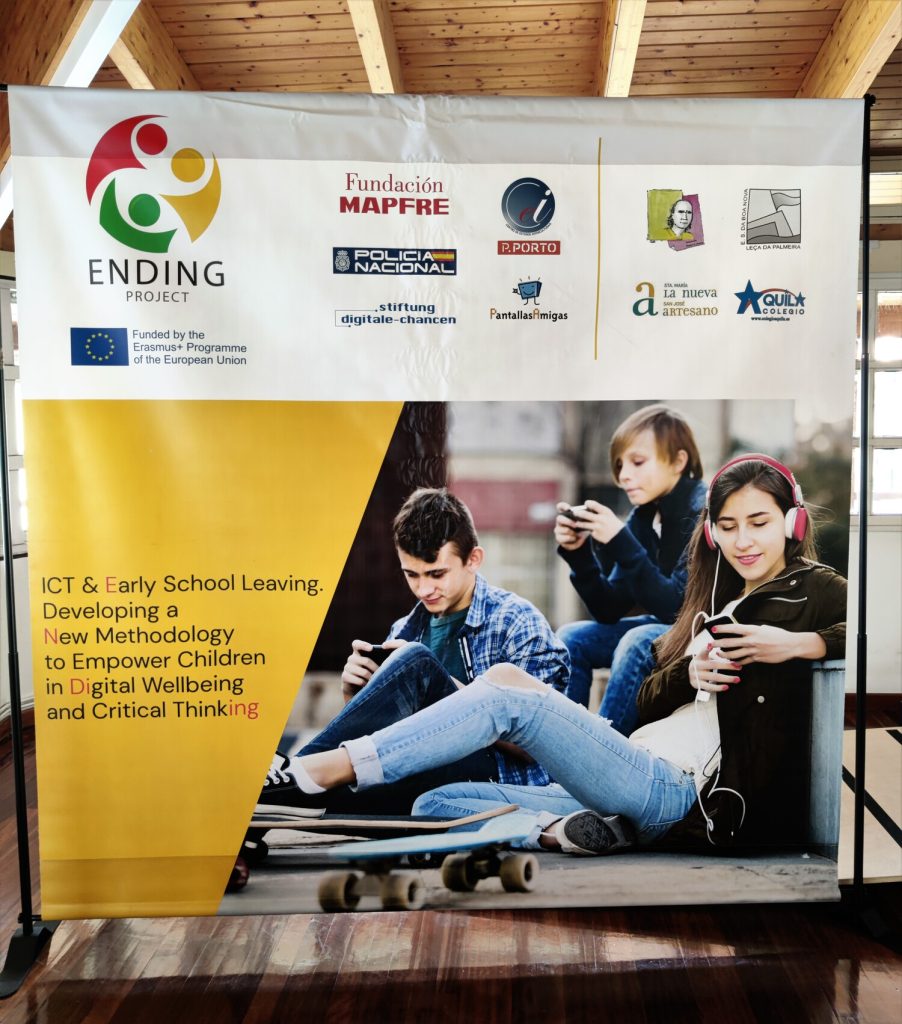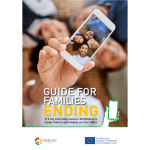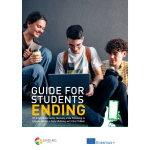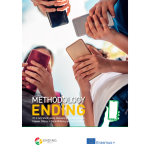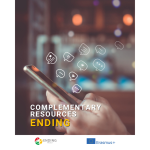- The Spanish National Police, PantallasAmigas, Stiftun Digitale Chancen, Instituto Politécnico de Porto and Fundación MAPFRE are part of this consortium supported by the European Union.
- Thanks to the ENDING project, two guides in three different languages have been produced with the help of teenagers aged between 13 and 15.
- The teachers’ guide explains, among other things, the risk of making contact with strangers, and the families’ guide stresses that it is important for young people to be aware that sharing images of child pornography is a crime.
- Families with fewer resources and at risk of social exclusion are the group that suffers most directly from early school dropout.
- In the coming academic year, work will be done on the third guide, aimed at students.
A total of five European organizations (the Spanish National Police, PantallasAmigas and Fundación MAPFRE, as well as the German Stiftung Digitale Chancen, and the Portuguese Instituto Politécnico de Porto) have joined forces to develop the ENDING project.
The aim of this educational initiative, funded by the European Union through the Erasmus+ program, is to help reduce early school dropout, one of the main problems facing the education system in Europe and which is influenced by factors such as the misuse of new technologies and the risks associated with the digital environment.
So far, ENDING has resulted in the development of two guides, in which renowned specialists have participated. These are available in Spanish, Portuguese and English.
The teachers’ guide proposes solutions to help young people in their personal and academic lives, including ways to limit the time they spend on ICTs; entertainment alternatives, such as sports tournaments and cultural activities; encouraging them to fulfill their responsibilities before using their cell phones; explaining the risks of contacting strangers; and teaching them how to protect their privacy. It also includes teaching sheets with activities to be carried out in the classroom.
Risk on the Internet
The five organizations have also prepared a guide for families, a group that suffers directly from the problem, especially parents who have fewer resources or are at risk of social exclusion. One of the innovative contents of this guide is the chapter dedicated to explaining the importance of knowing the Convention on the Rights of the Child and its adaptation to the digital world in which children live.
The aim is to provide them with information and advice on how to detect possible problems arising from the excessive use of digital devices by minors, as well as the risks involved in their exposure to the Internet and social networks. The guide proposes indications such as not taking compromising photos or videos to avoid ‘sexting’ or ‘sextortion’ situations; not disseminating these types of images, neither their own nor those of third parties; explaining to minors the importance of safeguarding their online image; making them understand that distributing images of child pornography is a crime; and insisting that they should tell family members, teachers, police or doctors about these types of events.
The schools that participated in the implementation and testing of the method were Colegio Aquila, in Parla, Madrid, C.E. Santa María la Nueva and San José Artesano (Burgos), and two Portuguese schools, Agrupamento de Escolas Eugenio de Andrade and Escola Secundaria da Boa Nova-Leca da Palmeira, both in Oporto.
Throughout the next school year, workshops will be held with the students of these centers and work will be done on the content of the final guide. The teenagers will play a special role in the preparation of the guides, which will use their language and experiences to develop the advice they will give to their peers. The final target is to design and test the method that will allow the educational centers to implement this program independently.
Downloads press release in PDF format:

